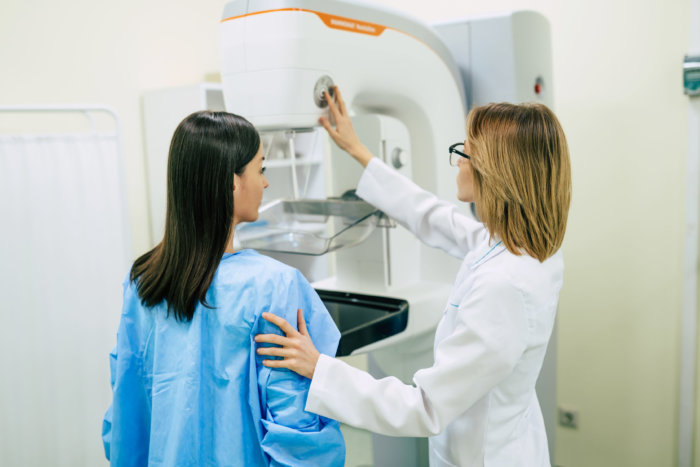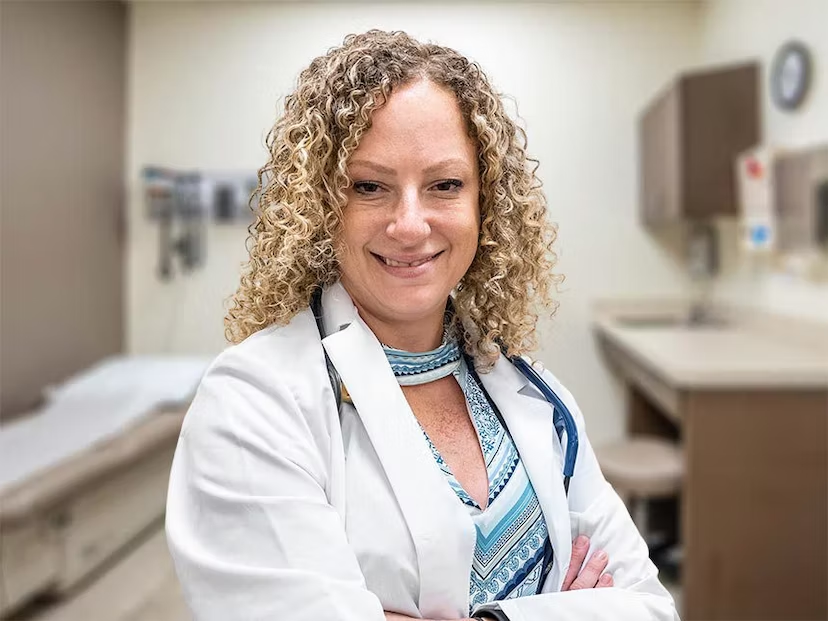People worried about developing breast cancer should build a strong relationship with their primary care doctor.
That’s one of the main pieces of advice from Dr. Marisa Gefen, who sees patients two days a week at Oak Street Health’s University City office. The rest of the time, she is overseeing the organization’s clinics in the Philadelphia region and Rhode Island.
Gefen spoke to Metro to answer common questions about breast cancer.

When it comes to breast cancer, what are the signs? What should people keep an eye out for?
Most of the time, breast cancer is going to be diagnosed on a mammogram. So I think it’s really important that people have a close relationship and an open and honest relationship with their primary care provider.
In terms of what they should look for on themselves, there’s a lot of back and forth around whether self-breast exams are really effective or not. I just kind of tell people to look for anything that is different. Really looking for anything that has changed on their body. Paying attention to any lumps, bumps, pains, and reporting that to their primary care doctor.
You mentioned mammograms. When should women begin getting regular mammograms?
There is a lot of controversy over what the right start age is; however, there’s generally some consensus that women over 50, although some agencies will say over 40. And this is for your average risk person. If you’re high risk, and there’s many things that might make you high risk, including family history, you should speak with your primary about when you should start individually.

Are there any ways to lower your risk of developing breast cancer?
Some of the things that will lower risk of breast cancer is decreasing your alcohol intake. We know that alcohol can increase your risk of breast cancer. And if you’ve had breast cancer, it can increase your risk of recurrence.
Other things that can lower your risk are exercise and diet. Breast cancer is fueled by estrogen. When you have a lot of fat cells or adipose cells, you actually make a high amount of estrogen.
What are the most common types of breast cancer?
The most common kind of breast cancer is called hormone receptor-positive breast cancer. That is sensitive to estrogen and progesterone, which are female hormones that are particularly high during the reproductive ages.
Do you encounter any misconceptions among patients related to breast cancer?
That getting a diagnosis of breast cancer is a death sentence, because oftentimes, it is not. Most of the time, it is not. Over the years, we’ve really been able to decrease the amount of treatments that early-stage breast cancer requires.
I think one misconception is that yearly mammograms are better than every other year. Because, in most cases, getting a mammogram every other year is adequate.
Why is that?
I think that it’s mainly because breast cancer is generally pretty slow growing. Only very aggressive breast cancers are going to grow all that significantly year to year and in that case, you would feel it.
I think there’s a lot of false positives with breast cancer screening. Women with dense breasts and younger women are going to have more false positives.
Responses were edited for clarity and brevity.































